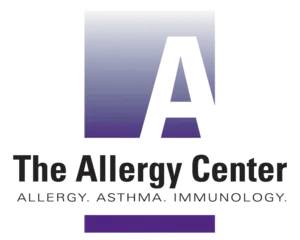What To Do About Your Pet Allergies
posted: Sep. 18, 2020.
 Living with a pet can be incredibly rewarding unless of course, you’re dealing with pet allergies. If your furry friends are causing you to sneeze or deal with red, watery eyes and a runny nose then it may be time to consult an allergist. An allergist can make it possible to live in harmony with your pets even if you’re allergic.
Living with a pet can be incredibly rewarding unless of course, you’re dealing with pet allergies. If your furry friends are causing you to sneeze or deal with red, watery eyes and a runny nose then it may be time to consult an allergist. An allergist can make it possible to live in harmony with your pets even if you’re allergic.
Pet Allergy Symptoms
Those with pet allergies may experience symptoms when petting or playing with a cat or dog if the animal licks the person’s skin or even from simply being in the same room as a pet. Common pet allergy symptoms include:
- Nasal congestion
- Runny nose
- Itchy, watery, and red eyes
- Postnasal drip
- Sneezing
- Dark circles under eyes
- Persistent cough
- Facial pressure
- Itchy skin
- Hives
Getting Tested for Pet Allergies
You must get proper allergy testing to determine whether or not you are dealing with a true pet allergy. After all, there are a variety of indoor and outdoor allergies that can also cause the same symptoms, and it’s important to be able to determine your triggers so you can avoid them. You may think you’re allergic to your pets, but you may not be dealing with pet allergies at all!
If you are concerned about pet allergies make sure your allergist knows to test specifically for this allergen. Along with pet allergy testing, your allergist may recommend additional allergy testing to confirm or rule out other types of allergies. A simple skin prick test is typically performed to check for pet dander allergies; however, your allergist may recommend a blood test.
How to Manage Your Pet Allergy Symptoms
Most people respond well to prescription allergy medications such as antihistamines, decongestants, and corticosteroids. The type of medication your doctor recommends will depend on the type of symptoms you are experiencing. Along with proper medication, your allergist will also discuss ways to reduce pet allergy triggers. This includes:
- Using a HEPA air filter in the home
- Bathing your pet at least once a week
- Keeping your bedroom a pet-free zone
- Vacuuming and cleaning surfaces regularly throughout the home
If you’re dealing with more severe pet allergy symptoms, your allergist may recommend immunotherapy (e.g. allergy shots).
Don’t let pet allergies affect your happy home. An allergist can help you get your symptoms under control so that you can fully enjoy sharing a roof with your fluffy companion.

